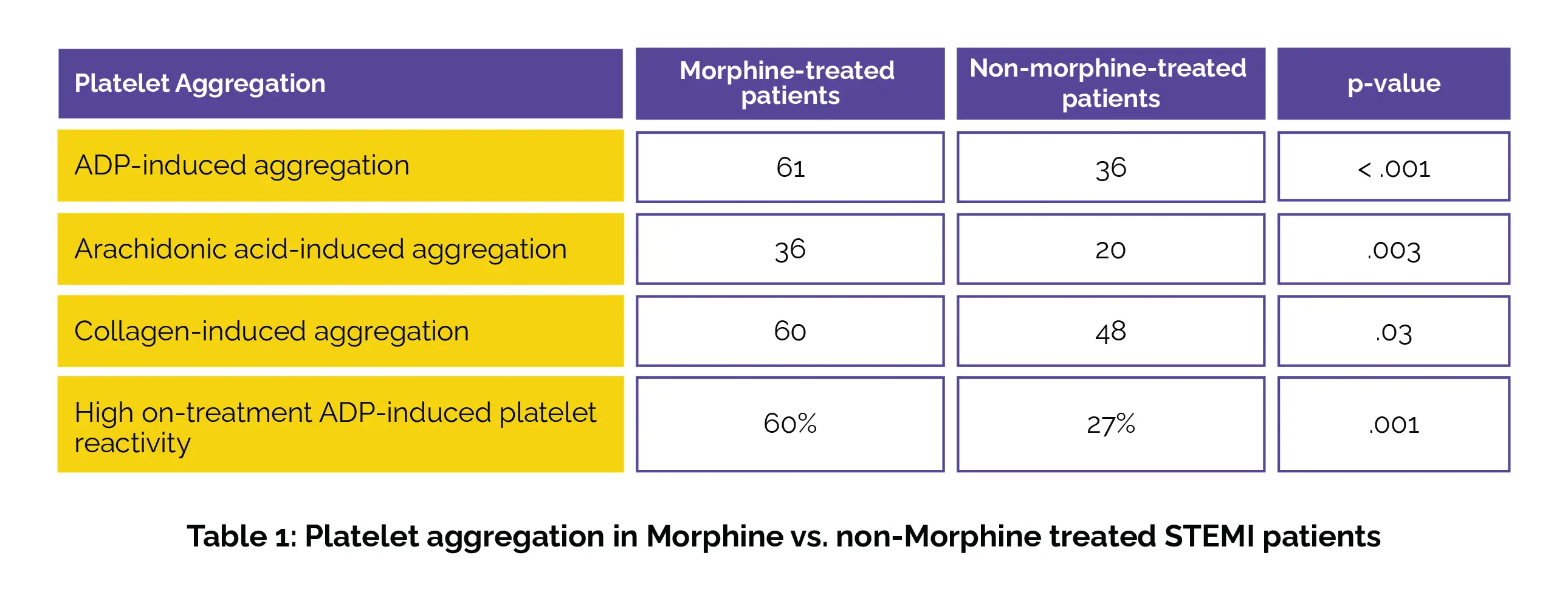Categories
Change Password!
Reset Password!


Morphine, an opiate, ensures safe pain management without compromising anti-platelet therapy in STEMI patients.
According to a new analysis from the VALIDATE-SWEDHEART trial published in “Platelet” Journal, administration of Morphine in patients with ST-segment elevation myocardial infarction (STEMI) leads to increased platelet aggregation but does not alter platelet-related biomarkers.
STEMI, caused by a ruptured plaque and thrombus formation, is treated with platelet inhibition and primary percutaneous coronary intervention (PCI). Morphine is used to ease pain and anxiety in STEMI patients. Menikae K Heenkenda and researchers aimed to inspect the link between platelet activity and Morphine in STEMI patients. This sub-study comprised 89 STEMI patients, all receiving Ticagrelor and primary PCI therapy. Platelet aggregation and biomarkers of platelet activity, coagulation and inflammation were measured prior to PCI, at 1 hour and 12 hours after PCI.
Of the total, 40 people received Morphine before the hospital visit. Patient demographics or coronary disease severity did not considerably vary between groups. An hour following PCI, patients who received Morphine showed significantly increased platelet aggregation to other agonists in comparison to those who did not receive Morphine. Furthermore, patients treated with Morphine displayed a greater percentage of high on-treatment adenosine diphosphate (ADP)-induced platelet reactivity (Table 1).

However, no differences were observed before or 12 hours after PCI. Importantly, no significant changes were noted in platelet activity biomarkers - soluble platelet selectin, thrombin-antithrombin complexes, and C-reactive protein, among others.
Platelets
Exploring the morphine-platelet activity association in patients with ST-elevation myocardial infarction undergoing primary percutaneous coronary intervention
Menikae K Heenkenda et al.
Comments (0)